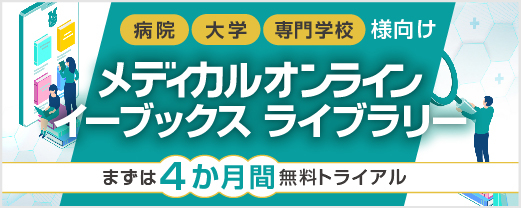アブストラクト
| Title | 2. 低体温療法 |
|---|---|
| Subtitle | 特集 新生児低酸素性虚血性脳症の最前線 - 近未来の管理 / 治療戦略 |
| Authors | 岩田欧介, 津田兼之介, 川瀬恒哉, 岩田幸子 |
| Authors (kana) | |
| Organization | 名古屋市立大学大学院 医学研究科 新生児・小児医学分野 |
| Journal | 日本新生児成育医学会雑誌 |
| Volume | 33 |
| Number | 1 |
| Page | 31-35 |
| Year/Month | 2021 / 2 |
| Article | 報告 |
| Publisher | 日本新生児成育医学会 |
| Abstract | 「要旨」低体温療法は神経科学が人類にもたらした最初の脳保護療法である. しかし, 新生児に先駆けて冷却の有効性を確立した成人の蘇生後脳症では, 近年, 体温を36℃に精密調整する平易な管理targeted temperature managementに主役を譲り, その明確な役割を失いつつある. 新生児の中等症以上の脳症に対する冷却は, そのエビデンスによる支持をますます盤石なものにしつつあるが, 冷却法の改良・適応拡大・併用療法の開発に関しては, この10年間に目立った進歩はない. 近年, このような停滞ムードを吹き飛ばす大きな動きが, 世界レベルで活発化している. 標的となる病態は, 現行の冷却基準をわずかに満たさない"軽症脳症"と言われる一群である. 本稿では, 低体温療法応用の道のりを簡単に振り返り, 近年の重要な成果と失敗を共有した後に, なぜ軽症脳症が新しい適応病態として最右翼に位置するのか, なぜその発症頻度・予後・低体温療法の効果が最優先で検討されるべきなのかを概説したい. |
| Practice | 臨床医学:内科系 |
| Keywords | 新生児, 低酸素性虚血性脳症, 重症度, 低体温療法, 予後操作因子 |
- 全文ダウンロード: 従量制、基本料金制の方共に770円(税込) です。
参考文献
- 1) Kono Y, Yonemoto N, Nakanishi H, Kusuda S, Fujimura M. Changes in survival and neurodevelopmental outcomes of infants born at <25 weeks' gestation : a retrospective observational study in tertiary centres in Japan. BMJ Pae-diatr Open 2018 ; 20 : e000211.
- 2) Iwata O, Iwata S. Filling the evidence gap : how can we improve the outcome of neonatal encephalopathy in the next 10 years? Brain Dev 2011 ; 33 : 221-228.
- 3) Edwards AD, Brocklehurst P, Gunn AJ, et al. Neurological outcomes at 18 months of age after moderate hypother-mia for perinatal hypoxic ischaemic encephalopathy : syn-thesis and meta-analysis of trial data. BMJ 2010 ; 340 : c363.
- 4) Jacobs SE, Berg M, Hunt R, et al. Cooling for newborns with hypoxic ischaemic encephalopathy. Cochrane Data-base Syst Rev 2013 ; 1 : CD003311.
- 5) Hayakawa M, Ito Y, Saito S, et al. Incidence and predic-tion of outcome in hypoxic-ischemic encephalopathy in Ja-pan. Pediatr Int 2014 ; 56 : 215-221.
残りの22件を表示する
- 6) Gladstone DJ, Black SE, Hakim AM. Toward wisdom from failure : lessons from neuroprotective stroke trials and new therapeutic directions. Stroke 2002 ; 33 : 2123-2136.
- 7) Thoresen M, Wyatt J. Keeping a cool head, post-hypoxic hypothermia--an old idea revisited. Acta Paediatr 1997 ; 86 : 1029-1033.
- 8) Polderman KH. Induced hypothermia and fever control for prevention and treatment of neurological injuries. Lan-cet 2008 ; 371 : 1955-1969.
- 9) Soar J, Berg KM, Andersen LW, et al. Adult Advanced Life Support : 2020 International Consensus on Cardiopul-monary Resuscitation and Emergency Cardiovascular Care Science with Treatment Recommendations. Resusci-tation 2020 ; 156 : A80-A119.
- 10) Nielsen N, Wetterslev J, Cronberg T, et al. Targeted tem-perature management at 33℃ versus 36℃ after cardiac arrest. N Engl J Med 2013 ; 369 : 2197-2206.
- 11) Westin B, Enhorning G. An experimental study of the hu-man fetus with special reference to asphyxia neonatorum. Acta Paediatr Suppl 1955 ; 44 : 79-81.
- 12) Silverman WA, Fertig JW, Berger AP. The influence of the thermal environment upon the survival of newly born premature infants. Pediatrics 1958 ; 22 : 876-886.
- 13) Takenouchi T, Iwata O, Nabetani M, Tamura M. Thera-peutic hypothermia for neonatal encephalopathy : JSPNM & MHLW Japan Working Group Practice Guidelines Con-sensus Statement from the Working Group on Therapeu-tic Hypothermia for Neonatal Encephalopathy, Ministry of Health, Labor and Welfare(MHLW), Japan, and Japan Society for Perinatal and Neonatal Medicine(JSPNM). Brain Dev 2012 ; 34 : 165-170.
- 14) Rao R, Trivedi S, Vesoulis Z, et al. Safety and short-term outcomes of therapeutic hypothermia in preterm neonates 34-35 weeks gestational age with hypoxic-ischemic en-cephalopathy. J Pediatr 2017 ; 183 : 37-42.
- 15) Laptook AR, Shankaran S, Tyson JE, et al. Effect of thera-peutic hypothermia initiated after 6 hours of age on death or disability among newborns with hypoxic-ischemic en-cephalopathy : A randomized clinical trial. JAMA 2017 ; 318 : 1550-1560.
- 16) El-Dib M, Inder TE, Chalak LF, et al. Should therapeutic hypothermia be offered to babies with mild neonatal en-cephalopathy in the first 6 h after birth? Pediatr Res 2019 ; 85 : 442-448.
- 17) Azzopardi D, Azzopardi D, Bainbridge A, et al. Moderate hypothermia within 6 h of birth plus inhaled xenon ver-sus moderate hypothermia alone after birth asphyxia(TOBY-Xe) : a proof-of-concept, open-label, randomised controlled trial. Lancet Neurol 2016 ; 15 : 145-153.
- 18) Tsuji M, Sawada M, Watabe S, et al. Autologous cord blood cell therapy for neonatal hypoxic-ischaemic enceph-alopathy : a pilot study for feasibility and safety. Scientific reports 2020 ; 10 : 4603.
- 19) Sato Y, Ueda K, Kondo T, et al. Administration of bone marrow-derived mononuclear cells contributed to the re-duction of hypoxic-ischemic brain injury in neonatal rats. Front Neurol 2018 ; 9 : 987.
- 20) Shankaran S, Laptook AR, Pappas A, et al. Effect of depth and duration of cooling on deaths in the NICU among ne-onates with hypoxic ischemic encephalopathy : a random-ized clinical trial. JAMA 2014 ; 312 : 2629-2639.
- 21) Iwata O, Takenouchi T, Iwata S, et al. The baby cooling project of Japan to implement evidence-based neonatal cooling. Therapeutic hypothermia and temperature man-agement 2014 ; 4 : 173-179.
- 22) Tsuda K, Mukai T, Iwata S, et al. Therapeutic hypother-mia for neonatal encephalopathy : a report from the first 3 years of the Baby Cooling Registry of Japan. Scientific reports 2017 ; 7 : 39508.
- 23) Tsuda K, Iwata S, Mukai T, et al. Body Temperature, Heart Rate, and Short-Term Outcome of Cooled Infants. Therapeutic hypothermia and temperature management 2019 ; 9 : 76-85.
- 24) Shibasaki J, Mukai T, Tsuda K, et al. Outcomes related to 10-min Apgar scores of zero in Japan. Arch Dis Child Fe-tal Neonatal Ed 2020 ; 105 : 64-68.
- 25) Wyckoff MH, Wyllie J, Aziz K, et al. Neonatal life support 2020 international consensus on cardiopulmonary resusci-tation and emergency cardiovascular care science with treatment recommendations. Resuscitation 2020 ; 156 : A156-A187.
- 26) Kariholu U, Kariholu U, Markati T, et al. Therapeutic hy-pothermia for mild neonatal encephalopathy : a systemat-ic review and meta-analysis. Arch Dis Child Fetal Neona-tal Ed 2020 ; 105 : 225-228.
- 27) Odd DE, Lewis G, Whitelaw A, Gunnell D. Resuscitation at birth and cognition at 8 years of age : a cohort study. Lancet 2009 ; 373 : 1615-1622.



